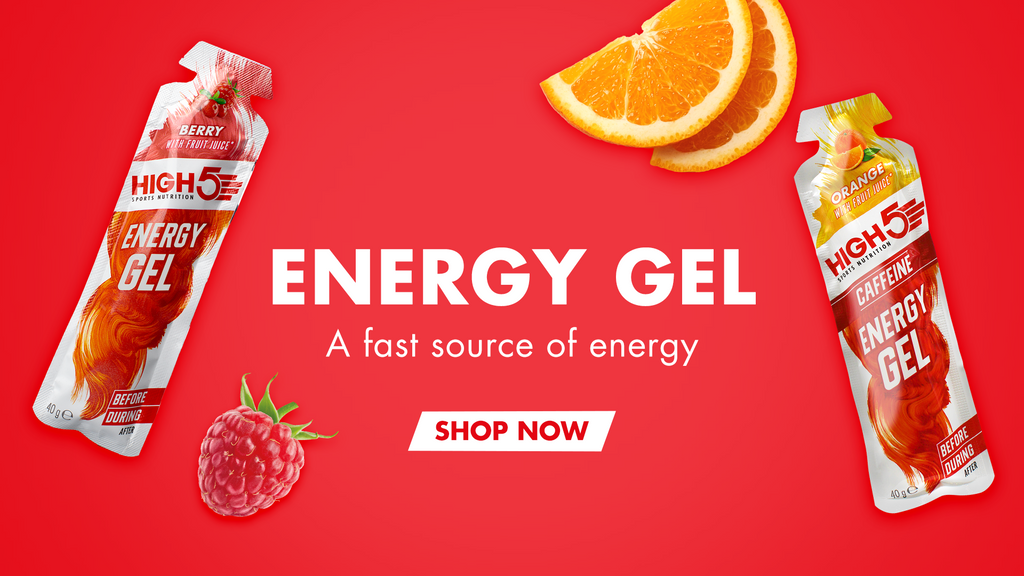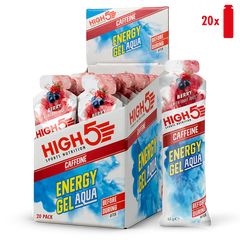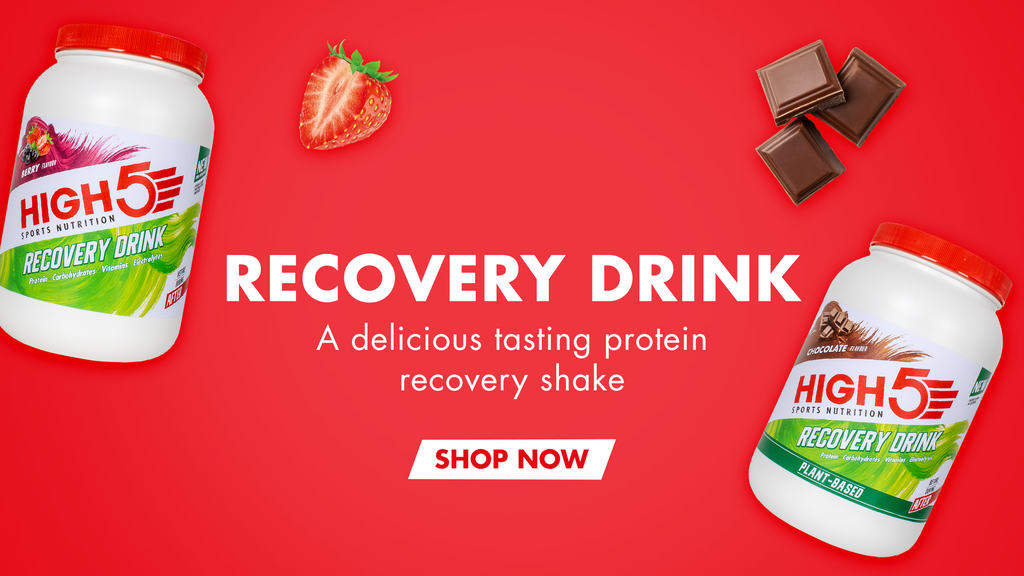If you’re preparing for a marathon, you must have trained hard for months to get in great shape and ready to line up at the start of those 26.2 miles. One of the critical pieces now is your marathon nutrition plan…
The Fuelling Facts
Running a marathon is an impressive feat that requires you to follow a marathon nutrition plan at least 16 weeks before the date — particularly when it comes to your energy sources. Carbohydrates play a central role in this, potentially contributing to about two-thirds of the energy your body utilises during the endurance test. However, the body’s capacity to store carbohydrates is finite, and as the race progresses, these reserves gradually dwindle.
This decline in carbohydrate levels correlates directly with a drop in your energy, making it increasingly challenging to keep up with your initial speed. The situation could escalate to the feared phenomenon known as “hitting the wall,” where your body is compelled to depend almost entirely on fat for energy due to the severe depletion of carbohydrate resources.
Fat conversion to energy is a laborious process for the body, making it difficult to sustain any running pace. As a result, fat is one of the foods to avoid when training for a marathon. On the other hand, it’s essential to ensure optimal carbohydrate levels on the day of your marathon. This can be achieved by “carbo-loading” in the days preceding your marathon event and maintaining carbohydrate intake during the marathon itself.
Carbohydrates, as vital as they are for prolonged energy, should ideally come from complex sources like whole grains, especially when considering carb loading before a race. These types of carbohydrates provide a more stable and prolonged energy release, benefiting your performance on the day.
However, during the run itself, it's advisable to focus on fast-release, simple carbs for quick energy replenishment. Additionally, it's recommended to steer clear of foods high in fibre directly before your run time, as they could potentially cause gastrointestinal discomfort.

Importance of a Balanced Diet
As a runner, your marathon nutrition plan extends far beyond carbohydrate consumption. To function at its best, your body requires a diverse range of nutrients, underlining the importance of a well-rounded diet in achieving your marathon objectives.
While carbohydrates are indeed critical for energy provision, they’re just one part of the nutritional puzzle. Proteins, for instance, play a vital role in muscle recovery and repair after the intense pressure of prolonged running. They help rebuild damaged tissue, enabling you to bounce back quicker from your training sessions and races.
Fats, although not recommended in heavy quantities, are equally as important. They provide a backup energy source when carbohydrate reserves run low and are essential for absorbing certain vitamins. They also play a key role in maintaining healthy skin and hair, regulating body temperature, and promoting cell health.
Vitamins and minerals, while needed in smaller quantities, are pivotal for your overall health and performance. They facilitate crucial bodily processes such as energy production, bone health, immune function, and oxygen transport.
In a nutshell, stick to our marathon runner’s diet plan example holistically if you’re serious about your performance. Don’t just limit your focus to carbohydrates; acknowledge the importance of proteins, fats, vitamins, and minerals. This balanced approach to nutrition will not only enhance your performance but also contribute to your overall health and well-being.
Timing of Meals
The role of meal timing in your performance and recovery as a runner can’t be overstated. It’s not just about sticking to your marathon diet weeks before the date but also when you consume it. Strategically timed meals can significantly enhance your running prowess and aid swift recovery.
If you’re considering what to eat before a run, it’s advisable to have a substantial meal approximately 3–4 hours beforehand. This gives your body sufficient time to digest and convert the food into usable energy, fueling your muscles for the upcoming exertion. This meal should ideally be balanced, encompassing carbohydrates for energy, proteins for muscle repair, and some healthy fats.
Consider bolstering your energy levels further by having a light snack 1–2 hours before your run. This snack should primarily feature carbohydrates, the body’s preferred energy source during intense exercise, and a modest amount of protein. This could be as simple as a banana with a spoonful of almond butter or a slice of whole-grain toast with some lean chicken.
Post-run, it's crucial to refuel your body with a nutritious meal or a suitable alternative like a high-quality recovery protein supplement such as HIGH5 Recovery Protein if you can't eat a meal quickly enough. This helps replenish the depleted glycogen stores and kickstarts the recovery process. A blend of carbohydrates and proteins is ideal, as carbohydrates replace lost energy reserves, and proteins assist in repairing the wear and tear in your muscles.
Navigating Nutrition During Your Marathon
Picture your body’s carbohydrate reserve as a small fuel tank, which begins to deplete the moment you start running. Your muscles quickly utilise these carbohydrates, and without proper management, these stores can run out during a marathon. However, by strategically consuming carbohydrate-rich gels as you run, you can slow down this depletion. The primary goal of incorporating these gels into your marathon nutrition plan is to ensure your fuel doesn’t run out until you’ve crossed the finish line.
While it may seem logical to consume as much gel as you can, it’s crucial to exercise caution. Your body can comfortably absorb a maximum of 60–90 g of carbohydrates per hour. Overconsumption may lead to stomach discomfort due to the body’s inability to process the excess.
Tip: Check out our guide on how many gels a marathon runner should consume for more info.
Optimising Your Race Day Breakfast
While you may start your marathon nutrition plan 12 weeks before the date, the morning of your race is the perfect time to fuel up with a light breakfast that’s rich in carbohydrates. Selecting the right foods can provide the necessary energy for your run without weighing you down. There are a multitude of options that can serve as an ideal race day breakfast.
Consider starting your day with a bowl of porridge. It’s a classic breakfast choice that’s easy on the stomach and packed with complex carbohydrates, which provide a steady release of energy. Porridge also offers the flexibility to add your preferred mix-ins, like fruits or nuts, for additional nutritional benefits.
Toast smeared with peanut butter is another excellent option. The bread provides a good source of carbohydrates, while the peanut butter adds a dose of healthy fats and protein. It’s a satisfying combination that keeps you feeling full without being overly heavy.
Pancakes, preferably whole grain for added fibre, also make a delightful and carb-rich breakfast. Top them with fruits or a drizzle of honey for some natural sweetness and extra carbohydrates.
In addition to food, hydration is key. Accompany your breakfast with a 500ml energy drink to not only hydrate but also infuse your body with additional carbs. This helps maintain fluid balance and ensures you’re well-hydrated before the race begins.
Lastly, don’t forget to pack an energy bar; consuming it en route to the start line can provide an extra energy boost just when you need it. Planning your race day breakfast carefully means you can start the race on a high note, primed for optimal performance.
Marathon Nutrition Plan for Novice Runners
For beginners in the running world, switching between Energy Gels with and without caffeine is recommended during the run. Take the caffeine ones like Energy Gel Aqua Caffeine when you need an extra boost but supplement with non-caffeinated gels in between. Both are designed to help you stay fueled and focused throughout. The recommended intake is one gel every 20-30 minutes. Consider using a gel belt to carry these gels for convenient and easy access during your run. This way, you'll easily access your energy boost, staying fueled and focused throughout your journey.
Marathon Nutrition Plan for Experienced Runners
Proper nutrition plays an instrumental role in enhancing your performance as an experienced runner. If you manage to get this right, you significantly increase your chances of achieving a new personal best (PB). One effective way to ensure you’re optimally fuelled is by alternating between Energy Gels with and without caffeine. This strategy helps maintain energy levels consistently throughout your run.
These gels are designed to provide a quick and easy source of energy, with the caffeine component offering an additional boost. For optimal performance, it's recommended to switch between caffeinated and non-caffeinated options during your run. The suggested intake is one sachet every 20 minutes for experienced runners.
However, it’s important to listen to your body in this process. If consuming three gel sachets an hour feels overwhelming, adjust the intake to what feels comfortable. Remember, the goal is to maintain your energy levels without causing discomfort.
Incorporating these gels into your longer training runs is a good strategy. This allows you to test how your body responds to the gels and fine-tune your intake to suit your needs. It also makes the process of consuming them during a race feel more natural and less disruptive to your running rhythm.
To carry your gels, consider using a gel belt. This accessory is designed to securely hold your gels while you run, ensuring they’re always within easy reach. It’s a practical solution that allows you to focus on your performance rather than worrying about carrying nutrition.
Understanding Caffeine and Gel Usage
The addition of Energy Aqua Gel Caffeine sachets into your marathon nutrition plan should be proportional to your body weight. The recommended dosage is 3 mg of caffeine per kg body weight. If you require additional energy gels beyond this point, it’s advisable to switch to Energy Gel Aqua or the regular Energy Gel, which are caffeine-free.
Energy Gel Aqua or Energy Gel?
Choosing between Energy Gel Aqua and Energy Gel is largely a matter of personal preference, as they both serve the same purpose of providing a swift energy boost. However, there are subtle differences that could influence your decision.
Energy Gel Aqua boasts a lighter consistency, landing somewhere between a drink and a gel. Runners often prefer this feature as it allows for a seamless intake while maintaining a steady pace. On the other hand, Energy Gel comes in a less bulky form and is lighter in weight, making it a convenient choice when you need to carry a larger quantity during longer runs.
In essence, the choice between the two boils down to your individual preferences and needs. Whether you opt for the lighter consistency of Energy Gel Aqua or the compactness of Energy Gel, both options are designed to support your performance by providing a much-needed energy boost.
Fluids: Essential Marathon Nutrition Plan Boosts
We’ve placed a great emphasis on proper nutrition, but it’s equally crucial not to overlook the significance of staying well-hydrated. Dehydration can become an unwelcome obstacle in your training journey, leading to symptoms like fatigue, decreased performance, and even posing potential health concerns. Therefore, you must consume adequate amounts of fluids before, during, and after your runs.
The volume of fluid intake required is largely determined by two factors: the temperature on race day and your sweat rate. Regular consumption of water or the drink provided on-course are excellent ways to rehydrate fast. However, if you choose to consume the on-course drink, be mindful of its carbohydrate content. Excessive carbohydrate intake from these drinks may require you to adjust the amount of gel you consume.
In more intense heat, your body may demand additional electrolytes to compensate for what’s lost through sweat. A convenient solution for this is individual ZERO tabs. Instead of wrapping them in Cling Film and carrying them with you during your run, consider finding out what type of fluid will be available on course on race day—whether it's just water, energy drink, or electrolyte drink like ZERO.
If it's just water, ensure you carry your own energy drink using a hand-held water bottle or a hydration vest. Alternatively, you can pop the ZERO tab directly into your water bottle for quick revitalization. A bonus? ZERO tabs are free from carbohydrates.
At the Finish
Upon crossing the finish line, immediately hydrate with 400ml of Recovery Drink to replace lost electrolytes and carbs and kick-start the recovery process. Repeat this intake one to two hours later. Also, ensure to consume a well-balanced meal at your earliest convenience.
The Importance of Protein in Muscle Recovery
Protein plays a vital role in muscle recovery and growth and must be added to your marathon nutrition plan. After an intensive run, your muscles will have experienced significant stress.
When considering what to eat after running, it’s important to opt for a meal rich in protein and carbohydrates within a 45-minute window to assist recovery. For marathon runners, optimal protein sources include lean meats, poultry, low-fat dairy products, legumes, soy, seeds, nuts, as well as some vegetables.
These sources not only provide the much-needed protein but also contribute to a balanced diet to support your recovery and future training sessions. If you can't eat a full meal within 45 minutes, consider opting for a HIGH5 Recovery Drink as it contains all the carbs, protein, vitamins, and minerals you need for post-workout recovery.
The HIGH5 Run Pack: Your Next Essential Running Partner
This meticulously curated pack bundles together our most sought-after Energy, Hydration, and Recovery products, all aimed to enhance your running performance. Check it out here and gear up for your next run or race.
A Leap Towards Improved Performance!
Recent studies conducted at the Copenhagen Marathon have yielded promising results. Runners who adhered to our marathon nutrition plan on the race day clocked in, on average, 11 minutes quicker, without any additional training or experiencing any stomach pain when running.
However, it’s imperative to note that these supplements aren’t a substitute for a balanced diet. They’re designed to supplement and optimise your existing dietary regimen. Before incorporating any new supplement into your routine, it’s always advisable to consult with a healthcare professional. This ensures safe and effective integration with your current lifestyle and fitness goals.
Remember, sticking to your marathon nutrition plan is crucial, but flexibility is also key. Every runner is unique, and what works for one might not work for another. Experiment and find what works best for you, but avoid trying anything new close to race day.
Good luck!
Special Note On Caffeine!
If you have any medical condition, including high blood pressure, if you are pregnant, breastfeeding or under 18 years of age, do not use caffeine. If you are sensitive to caffeine and suffer any side effects, such as a higher-than-expected heart rate, discontinue use immediately. If you do not wish to use caffeine for any reason, simply follow our marathon nutrition plan using gel without caffeine.
Frequently Asked Questions
What is the best diet for a marathon?
The ideal diet for a marathon includes complex carbohydrates for sustained energy, lean proteins for muscle recovery, and healthy fats for long-lasting fuel. Hydration is crucial, so regular intake of water and electrolytes like the HIGH5 Energy Drink is essential. Likewise, balance is key, and a variety of fruits and vegetables provide needed vitamins and minerals.
How many gels should I eat during a marathon?
It's recommended to take one gel sachet every 20-30 minutes depending on needs and experience. Experienced runners are advised to consume one gel sachet every 20 minutes during a marathon, while novice runners may opt for a gel sachet every 30 minutes. These guidelines ensure sustained energy release throughout the race, helping to optimize performance.
How many calories should I eat during a marathon?
Aim to eat about 120 calories an hour during a marathon, which equates to about 30 g of carbohydrates. So, if you run a marathon in 3 hours, consider consuming up to 360 calories.
What should I do 48 hours before a marathon?
In the final 48 hours before a marathon, focus on hydrating well with the ZERO Electrolyte Drink Tablets, consuming carbohydrate-rich meals to maximise glycogen stores, and getting plenty of sleep. Additionally, limit strenuous activity to ensure your body is rested and prepared. Lastly, gather your gear and plan your race day logistics.















